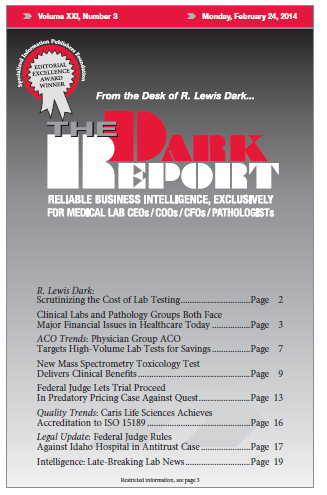CEO SUMMARY: Are clinical labs and pathology groups ready for the end of fee-for-service reimbursement? That’s just one important question that will be answered at the upcoming Executive War College on Lab and Pathology Management that will take place in New Orleans on April 29-30. The American healthcare system is undergoing unprecedented transformation and sessions …
Labs, Path Groups Face Major Financial Issues Read More »
To access this post, you must purchase The Dark Report.


